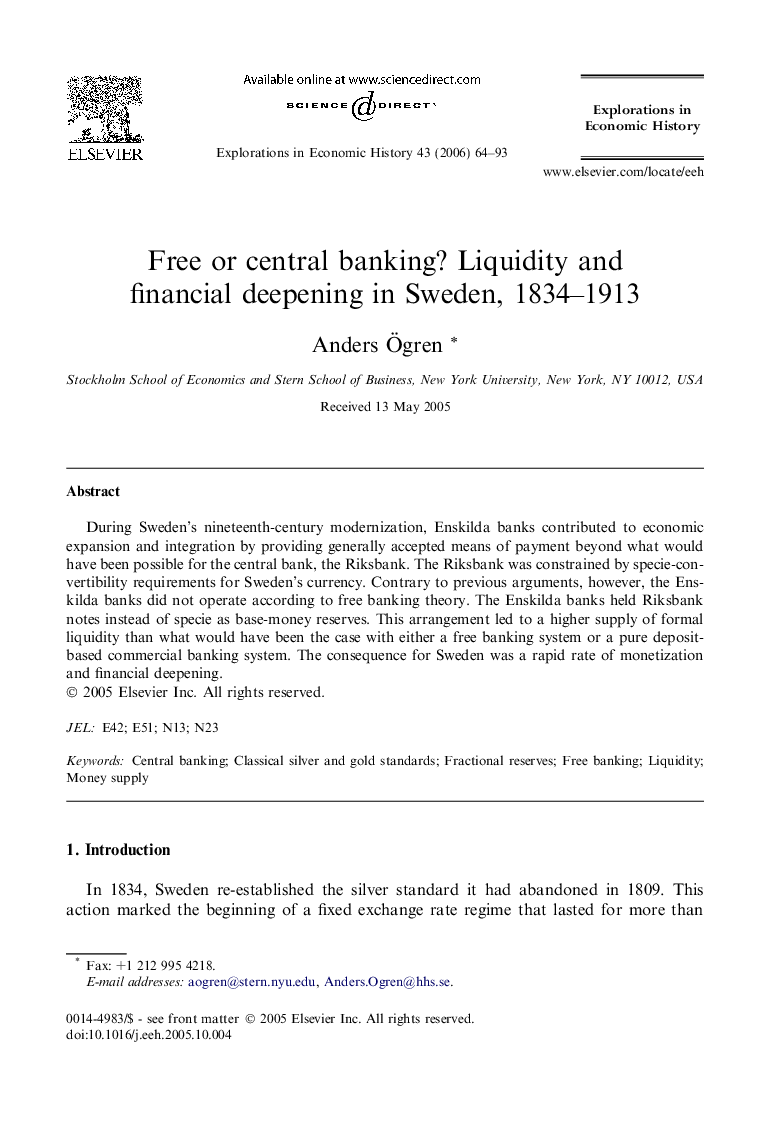| کد مقاله | کد نشریه | سال انتشار | مقاله انگلیسی | نسخه تمام متن |
|---|---|---|---|---|
| 5069124 | 1373035 | 2006 | 30 صفحه PDF | دانلود رایگان |

During Sweden's nineteenth-century modernization, Enskilda banks contributed to economic expansion and integration by providing generally accepted means of payment beyond what would have been possible for the central bank, the Riksbank. The Riksbank was constrained by specie-convertibility requirements for Sweden's currency. Contrary to previous arguments, however, the Enskilda banks did not operate according to free banking theory. The Enskilda banks held Riksbank notes instead of specie as base-money reserves. This arrangement led to a higher supply of formal liquidity than what would have been the case with either a free banking system or a pure deposit-based commercial banking system. The consequence for Sweden was a rapid rate of monetization and financial deepening.
Journal: Explorations in Economic History - Volume 43, Issue 1, January 2006, Pages 64-93